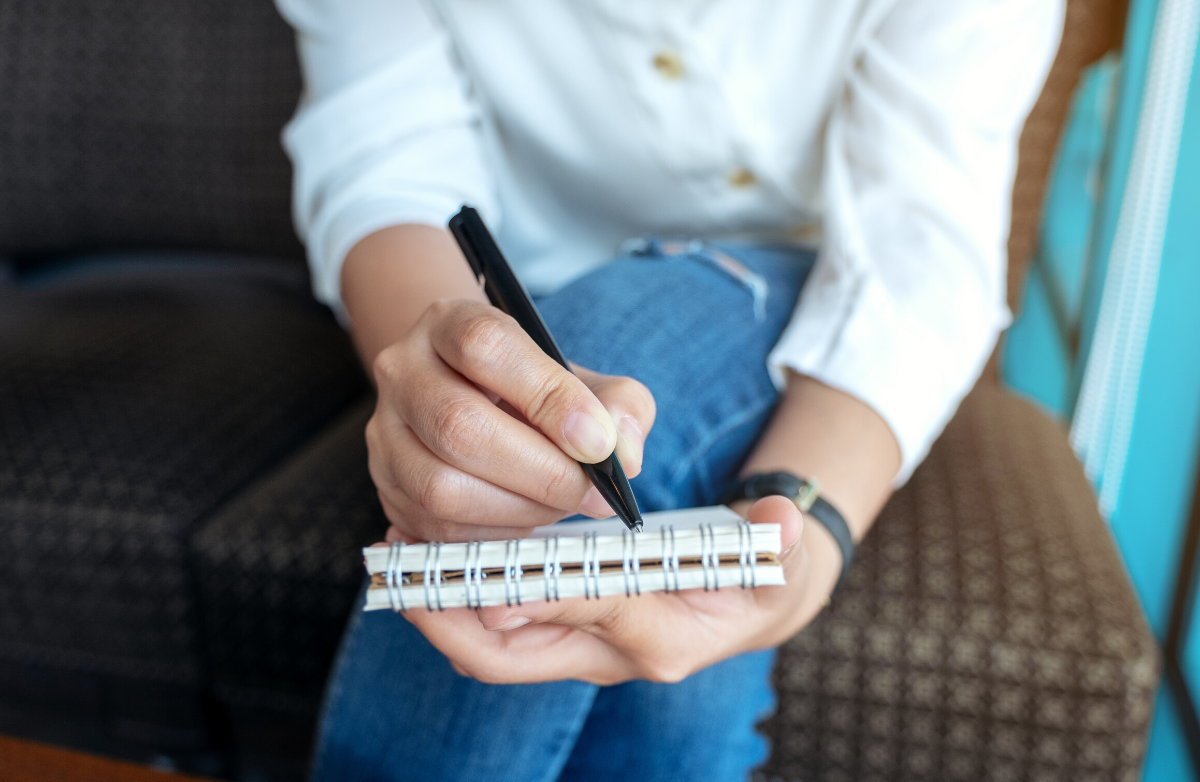Mindfulness is having a moment—and it’s more than just a trendy buzzword. In a nutshell, it’s the practice of focusing on the present—your thoughts, feelings and immediate surroundings—rather than dwelling on the past or fretting about the future. According to Dorsey Standish, chief mindfulness officer at Mastermind Meditate, a consistent mindfulness practice has been shown to reduce levels of stress and anxiety, encourage positive emotions and support physical wellness.
And that doesn’t have to mean meditating every day. “Even just one mindfulness meditation or mindful pause can lower your stress levels and boost your mood,” Standish points out.
Not sure how to squeeze periods of mindfulness into an already busy schedule? These bite-sized goals make it easier than you might expect.
Disconnect from all screens for the first and last hour of each day.
Julie Frischkorn, director of behavioral health and mindfulness for PeopleOne Health, recommends this practice as a means
of transitioning mindfully between your sleeping and waking worlds. You might be surprised by the creative thoughts and awareness that emerge when you focus inward instead of outward at these times of day.
When you’re stressed, S.T.O.P.
When you notice yourself stressed or frantic, Standish says that is actually a moment of mindful awareness. Instead of fighting against stress or strong emotions, she suggests taking a mindful pause and using the S.T.O.P. method:
- Stop what you’re doing
- Take a few deep breaths
- Observe your experience (thoughts, feelings, bodily sensations)
- Proceed with something that will support you in that moment
Set your alarm to wake you up 15 minutes earlier.
The extra time will allow you to be less rushed, Frischkorn noted. You can also opt to use those 15 minutes for a mini-meditation session, or just to be alone in a quiet space with your thoughts and intentions.
Schedule breathing breaks.
When learning to live a more mindful life, the breath is a good place to start. We are breathing all the time, although usually unconsciously. By tuning in to our breathing, we can unify our mind and body and become tied to the present moment.
Try setting an alarm twice a day for breathing breaks. When the alarm sounds, shift your attention from whatever is going on to the act of taking seven single, purposeful breaths, Williamson recommends.
Use mirrors as confidence-boosters.
Every time you pass a mirror, Frischkorn suggests using it as an opportunity to name something you are grateful for, rather than passing judgment on what you see.
Take a sensory pause.
If you’re feeling stressed, overwhelmed or just disconnected with yourself, Standish suggests taking a “sensory pause” and noticing the following in your surroundings:
- 5 things you can see
- 4 things you can hear
- 3 things you can touch
- 2 things you can smell
- 1 thing you can taste
Eat mindfully.
You’ve got to eat anyway, so why not use your meals as an opportunity for mindfulness? Before eating, take a look at your food. Notice it, smell it, take a look at the amount of food, and then start eating it slowly and without distractions.
Start a gratitude practice.
Wellness expert Miriam Amselem recommends taking some time each evening to write about three moments of gratitude that you experienced during your day. As you record each one, focus on it and allow yourself to go back to that moment.
Exercise without listening to music.
Without the auditory distraction, you’ll likely pay closer attention to your body and your thoughts. Whether you’re running, walking or biking, quiet exercise can serve as a form of active meditation.
Practice acceptance.
When you are experiencing something unpleasant and a negative emotion arises—whether you're stuck in traffic, waiting in line at the grocery store or dealing with a rude comment from a boss or co-worker—aim to practice taking control of the emotion.
When the emotion comes up, stop and tell yourself, "my mind is experiencing unpleasantness". Repeat the phrase three times, and allow yourself to acknowledge and feel the negative emotion. Then, tell yourself, "this will pass" before taking a deep breath and counting to 10.
The practice of mindfulness isn’t over when you have finished one of these exercises. The focus and clarity you have gained will carry forward throughout the rest of the day in all of your activities and interactions.













